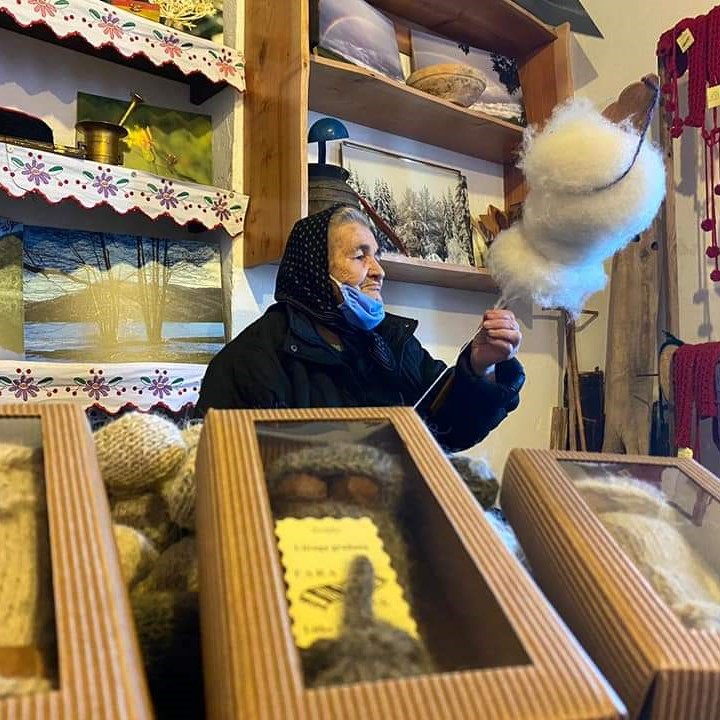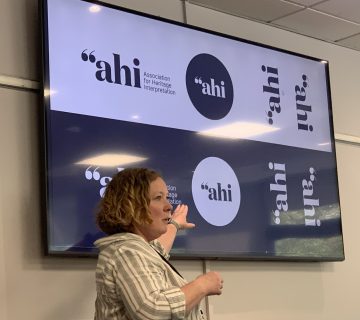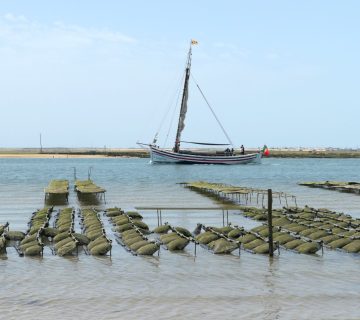Keeping heritage alive through tourism – A happy and fruitful marriage in the old days was all down to the women’s kitting skills!
In this area of Croatia, where the space is richest and the population poorest, Lika county is a mainly hilly and mountainous region, where life was never easy. With short summers and long winters, the fire In Lika´s furnaces burns almost all year round.
According to an old legend, Lika is named after the ancient Greek word, lycos, meaning wolves – land of wolves. There is a younger legend that the Romans found a good source of clean, drinking water there so they named it Lika, after the latin word, liquor, meaning (running) water. And there is also a folk tale: Once upon a time, the ancient people (Greek or Roman, we are not sure) just moved away from region. It was too cold. They experienced snow in June and it was too much for them. Only the hardiest people remined. That is how the Lika people came to be.
Life in Lika is not easy, but nature is wonderful. Lika is full of clean drinking water and it boasts the Plitvice lakes, a pearl of nature, well known throughout the world and protected by UNESCO.
The people in Lika are mostly mountaineers. They don’t talk much, but in talking they use a lot of riddles. Lika’s people like to joke about themselves. They say that the bear was their father, and the beech tree their mother. One of the world’s greatest minds, Nikola Tesla, was born and grew up in Lika county.
The folk costume is simple, just a few colours: dark red, black, brown, green. The women wore a cotton dress, a woollen apron, woollen socks and a scarf. The men wore cotton shirts, woollen trousers, woollen socks and a leather vest. Sheep’s wool was mostly used to make textiles, in addition to flax and hemp.
Although the women did not wear underwear, the men traditionally wore a very specific style of woollen underwear – a suspender or codpiece called a nakurnjak or ‘willy warmer’. Every young girl had to knit a coarse sheep’s wool suspender for her future husband before marriage. Sometimes she could determine the size herself, sometimes with help from more experienced cousins, grandmothers or godparents. If there was no help in sizing, a hand-held coffee grinder was used as a model!
A married woman’s duty was to bring a box of clothes and bedding to the new family. Placed carefully on top of the box was the male suspender made of coarse sheep’s wool. It was said that the tingling sensation produced by wearing the wool next to the skin produced good blood circulation and ensured fertility to produce a lot of children. The suspender was worn in winter (to keep warm) and also in summer (to keep cool) and also provided protection in horse riding.
The woollen suspenders were made in the Lika region until the 1950s but since then have been forgotten, apart from as an exhibit in ethnomuseums. However, for the last fifteen years the suspenders have been made as a souvenir and an unusual gift, with some of the older women willing to talk about this old custom, so the tourism trade is somewhat keeping the heritage alive for those who would like to understand it.
Sonja Leka is a licenced tourist guide for Lika and Plitvice Lakes. You can contact her at: sonja.leka.lps@gmail.com.
To cite this article: Leka, Sonja (2021) ‘Suspenders for marriage (and tourism)’ in Interpret Europe Newsletter 2-2021, 29.
Available online: https://interpret-europe.net/wp-content/uploads/2021/06/Newsletter-Summer-2021.pdf




